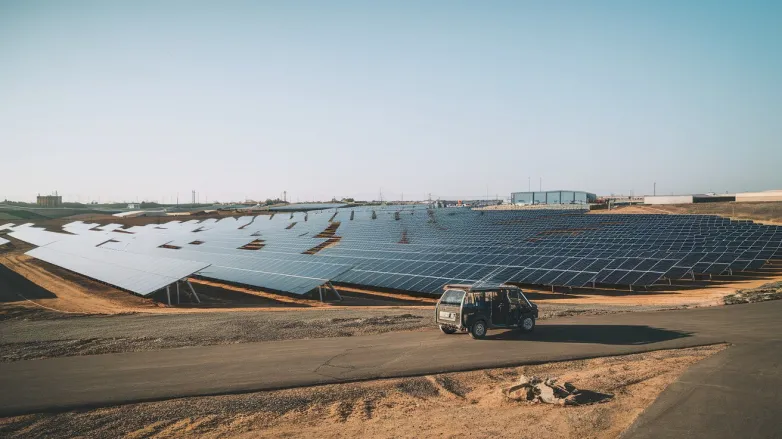Dominican Republic Approves Ecoener's New 50-MW Solar Farm
- The Dominican Republic takes a leap into clean energy with the CNE's approval of the Payita 2 solar farm, advancing sustainability and reducing fossil fuel reliance.

The Dominican Republic's national energy commission (CNE) has approved LCV Ecoener Solares Dominicana SRL's construction of a 49.98-MW solar farm, Payita 2, alongside a 15 MW/60 MWh battery energy storage system (BESS) in Nagua, Maria Trinidad Sanchez province. This concession represents a significant step in enhancing the country’s renewable energy capabilities.
Echoing a recently secured 50-MW project (Payita 1) in the same region by Ecoener SA, the Payita 2 project highlights the Dominican government's shift towards reducing fossil fuel dependency and increasing clean energy investment. The CNE's approval underscores its commitment to integrating storage solutions into renewable initiatives.
How does Payita 2 contribute to the Dominican Republic's renewable energy goals?
Here’s a bulleted list detailing how the Payita 2 solar farm contributes to the Dominican Republic's renewable energy goals:
- Increased Renewable Capacity: The 49.98-MW capacity of Payita 2 adds to the existing renewable energy infrastructure, helping the Dominican Republic reach its target of generating a larger percentage of energy from renewable sources.
- Energy Security: By diversifying its energy sources through projects like Payita 2, the Dominican Republic enhances its energy security, reducing reliance on imported fossil fuels and insulating the economy from price volatility in global energy markets.
- Sustainability Goals: Payita 2 supports national sustainability goals by providing a clean and renewable energy source, contributing to the reduction of greenhouse gas emissions and fostering environmentally friendly practices.
- Battery Energy Storage System (BESS): The inclusion of a 15 MW/60 MWh battery energy storage system plays a critical role in balancing supply and demand, enabling the storage of excess solar energy for use during peak times or when sunlight is not available.
- Job Creation: The construction and subsequent operation of the solar farm are expected to create jobs in the local community, from construction positions to long-term operational roles, thereby boosting the local economy.
- Promotion of Technological Innovation: Payita 2 serves as a platform for integrating advanced renewable technologies, encouraging further investment and development in innovative energy solutions within the Dominican Republic.
- Demonstration of Commitment: The approval of Payita 2 symbolizes the Dominican government's commitment to renewable energy, signaling to investors and the public that there is a serious intent to transition towards more sustainable energy systems.
- Regional Development: Located in the Maria Trinidad Sanchez province, the project not only contributes to national energy goals but also aids in regional development by improving local infrastructure and energy access.
- Support for Future Projects: The successful implementation of Payita 2 can serve as a model for future renewable energy projects in the Dominican Republic, inspiring confidence among investors and stakeholders in the viability of similar initiatives.
- Alignment with International Goals: The development of projects like Payita 2 aligns with global efforts to combat climate change, showcasing the Dominican Republic’s dedication to international agreements such as the Paris Agreement.
By integrating these factors, Payita 2 plays a vital role in advancing the Dominican Republic's transition toward a more sustainable and resilient energy future.
Also read

